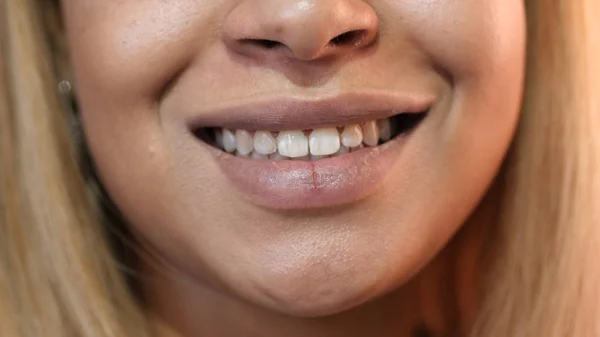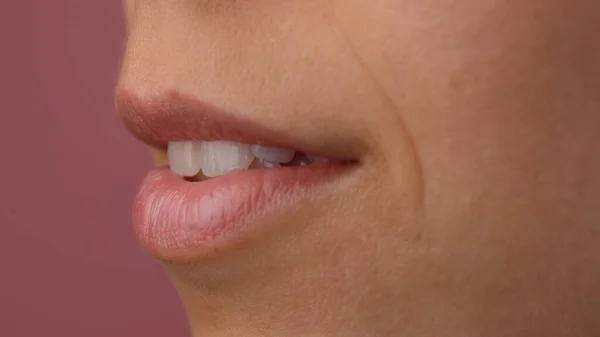The Ultimate Guide to Preventing Dry Mouth After Rhinoplasty – Rhinoplasty, a surgical procedure aimed at reshaping the nose, is a transformative experience for many individuals seeking aesthetic or functional improvements. While the focus often revolves around the nasal region, it’s crucial to address the potential side effects that can extend beyond the immediate surgical site. Dry mouth is one such concern that postoperative rhinoplasty patients may encounter. In this comprehensive guide, we delve into the intricacies of preventing and managing dry mouth after rhinoplasty to ensure a smoother recovery process.

Understanding the Rhinoplasty-Dry Mouth Connection
Before delving into preventative measures, it’s imperative to comprehend the underlying factors that link rhinoplasty to dry mouth. The nasal anatomy plays a pivotal role in regulating airflow and humidity as we breathe. Rhinoplasty procedures can temporarily disrupt this delicate balance, leading to increased oral dryness.
Dry mouth, medically known as xerostomia, is characterized by reduced saliva production. Saliva is not only essential for oral lubrication but also aids in digestion and helps maintain oral hygiene by neutralizing acids and preventing bacterial overgrowth.
Factors Contributing to Post-Rhinoplasty Dry Mouth
Several factors contribute to the onset of dry mouth after rhinoplasty, and understanding these variables is crucial for effective prevention. Let’s explore some key aspects:
- Nasal Packing: Commonly used to control bleeding and provide support during the initial stages of recovery, nasal packing can obstruct the natural nasal airflow, impacting the humidification process.
- Mouth Breathing: Patients may resort to breathing through their mouths post-rhinoplasty due to nasal congestion or discomfort. Mouth breathing significantly accelerates oral moisture evaporation.
- Medication Side Effects: Analgesics and other medications prescribed for pain management post-rhinoplasty can contribute to decreased saliva production, intensifying dry mouth symptoms.
- Dehydration: Reduced fluid intake during the recovery period can exacerbate dry mouth. Hydration is crucial for maintaining optimal saliva production and overall well-being.
Preemptive Strategies for Preventing Dry Mouth
1. Hydration Is Key
The cornerstone of dry mouth prevention lies in maintaining adequate hydration. Encourage patients to consume ample water throughout the recovery process. Optimal fluid intake not only addresses potential dehydration but also aids in mucous membrane health.
2. Humidification Techniques
Incorporating humidification measures into the postoperative environment can mitigate the impact of nasal packing on nasal moisture. Humidifiers in the bedroom can be particularly beneficial, ensuring a more comfortable breathing experience.
3. Breathing Exercises
Guiding patients through simple breathing exercises can help alleviate the temptation to resort to mouth breathing. Emphasize the importance of nasal breathing to promote natural humidification and reduce the risk of dry mouth.
4. Saliva-Stimulating Products
Suggesting over-the-counter saliva-stimulating products, such as sugar-free gums or lozenges, can provide relief by promoting saliva flow. These products can be especially useful during the initial days when nasal packing is still in place.
5. Medication Management
Collaborate closely with prescribing physicians to explore alternative pain management strategies with fewer implications for dry mouth. Adjusting medication regimens can contribute significantly to a more comfortable recovery.
Navigating the Immediate Post-Rhinoplasty Period
The initial days following rhinoplasty are critical in determining the trajectory of recovery. Implementing specific strategies during this period can substantially reduce the likelihood of dry mouth complications.
1. Effective Nasal Packing Removal
The timely and careful removal of nasal packing is paramount in preventing prolonged dry mouth. Collaborate closely with the surgical team to ensure a smooth and cautious extraction process, minimizing disruption to nasal airflow.
2. Moisturizing Oral Rinses
Introducing prescribed oral rinses with moisturizing properties can soothe oral tissues and counteract the drying effects of nasal packing. These rinses can become an integral part of the postoperative care routine.
3. Dietary Adjustments
Encourage patients to include hydrating foods in their postoperative diet. Foods with high water content, such as fruits and soups, can contribute to overall hydration levels and aid in mitigating dry mouth symptoms.
4. Regular Follow-Up Assessments
Scheduled follow-up appointments allow for continuous monitoring of recovery progress. Addressing any emerging dry mouth symptoms promptly ensures timely interventions and a more seamless recuperation.
Long-Term Strategies for Sustained Oral Health
1. Oral Hygiene Practices
Educate patients on meticulous oral hygiene practices to mitigate the risk of complications associated with dry mouth. Regular brushing, flossing, and alcohol-free mouthwash use can prevent bacterial overgrowth and maintain oral health.
2. Routine Dental Check-Ups
Emphasize the importance of regular dental check-ups, especially in the post-rhinoplasty phase. Dental professionals can identify early signs of dry mouth and recommend appropriate interventions to prevent long-term complications.
3. Lifestyle Adjustments
Encourage lifestyle modifications that support overall well-being and oral health. This includes avoiding tobacco products, limiting alcohol intake, and incorporating a balanced diet rich in nutrients essential for oral and systemic health.
Conclusion
In conclusion, the journey to a successful rhinoplasty recovery extends beyond the aesthetic outcome to encompass holistic well-being, including oral health. By understanding the dynamics of dry mouth after rhinoplasty and implementing proactive strategies, both patients and healthcare professionals can contribute to a smoother recuperation process. The ultimate goal is not just a beautifully enhanced nose but a harmonious overall recovery experience, ensuring that the transformative effects of rhinoplasty extend to every facet of a patient’s well-being.
Read Also | Pink Noise May Help You Get The Best Sleep At Night: Experts Decode How?
Note: This article is written based on scientific evidence found by the 247newsaroundtheworld.com team. Sources are duly referenced with keywords hyperlinked to source websites and are clickable for reference.







